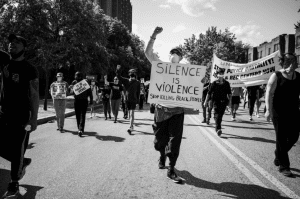Part One; Part Two; Part Three
And now we come to the salacious part, the part about moral reform. This is directed principally, though not solely, toward transgressions of celibacy and the attendant coverups. A few words are in order first, though.

To begin with, a lot of Catholics have been trying to scapegoat gay priests, and LGBTQ people in general, for the abuse crisis. It is quite true that a majority of the abuse, around four-fifths, has been homosexual in nature—that is, has consisted in adult men engaging in some kind of sexual contact with other males. However, the idea that this is the way most gay men naturally behave is outrageous nonsense, and the Ban Gay Priests crowd are ignoring a lot of other pertinent facts about clerical abuse, that pesky one-fifth of female victims not least among them. I don’t have time to stop for the book that these misunderstandings would need to be answered: I will say only that banning the ordination of gay men completely (1) is not a real solution to abuse, only a blame-shifting tactic to make straight Catholics feel as if Something Has Been Done.
In a similar vein, I think that some of these rules, if adopted, would be used disproportionately to target gay clergy, and that that would be both unjust and unwise. I honestly don’t see a way around that: homophobia (i.e., irrational personal prejudice against people who happen to be attracted to their own sex) is pretty normal in Catholic culture, and largely unconscious. But I truly think, perhaps mistakenly, that it would be even worse to do nothing. And there’s no reason not to try and work on multiple problems at the same time.
Anyway. These are my suggestions for:
III. Moral Reform
1. All Catholic lobbying and advocacy in defense of any statute of limitations on the report and prosecution of sex crimes shall cease immediately, and never be resumed. The defenses of these laws made by many dioceses and Church-run organizations is an utter disgrace. It is an active effort on the part of shepherds not only to coddle the wolves, not only to abandon the lambs, but to punish lambs with the audacity to bleat for help when the wolves have mangled them.

2. Bishops and leaders of religious communities who are found guilty of violating their vows of celibacy or poverty shall promptly be deposed and replaced. I would leave this to the discretion of the legate—there could, I suppose, be grounds for leniency in particular cases (though never in cases of abuse). But the rule as such, I feel, is implied in the nature of the vows taken by bishops and religious in the first place.
3. All seminaries and religious houses shall include a minimum of one mandatory course detailing the nature of sexual harrassment, abuse, and other misconduct. This would include thorough information about proper reporting channels, secular as well as diocesan and religious.
4. All seminarians and clergy shall observe abstinence from flesh meats on all Wednesdays and Fridays throughout the year. This point is of course comparatively trivial. Still, a little revival of apostolic practices never hurt anybody, especially not anybody actually in the apostolic succession. And a concrete act of self-discipline, while it would by no means solve every problem, would help form the habit of controlling the passions; that is far from all that is needed to deal with abuse, but on the other hand, he that is faithful in little is also faithful in much.
5. All bishops (regnant, retired, or deposed alike, and including coadjutor bishops) who have been involved in financial or sexual misconduct or who have concealed other people who were, shall make a full apology in writing to the diocese or dioceses against which they thus sinned, and shall perform a public penance at least once per year. Ideally, this public penance should be during the principal Sunday liturgy at the cathedral of their current or former diocese, for maximum visibility. Saving one’s soul from monstrosities of this kind ought to feel humiliating; one is being brought back to humility from a pride that is literally diabolical, and if that doesn’t hurt it probably isn’t really happening. But I recognize this may not always be practicable.

(1) I say completely here because gay men are in fact admitted as candidates for ordination only on a very strictly controlled basis according to current canon law. Candidates with “deep-seated homosexual tendencies” are (if I have my facts right) required to display perfect continence for at least three years before being accepted into seminary at all; why this same rule is, apparently, not asked of heterosexuals, despite the fact that they too are contemplating lifelong celibacy, I don’t know. The problems surrounding this are many and involved, and once more I cannot stop to write the book that they call for right now, even supposing that my amateur grasp of theology and canon law is adequate to do so.
Images via Pixabay












